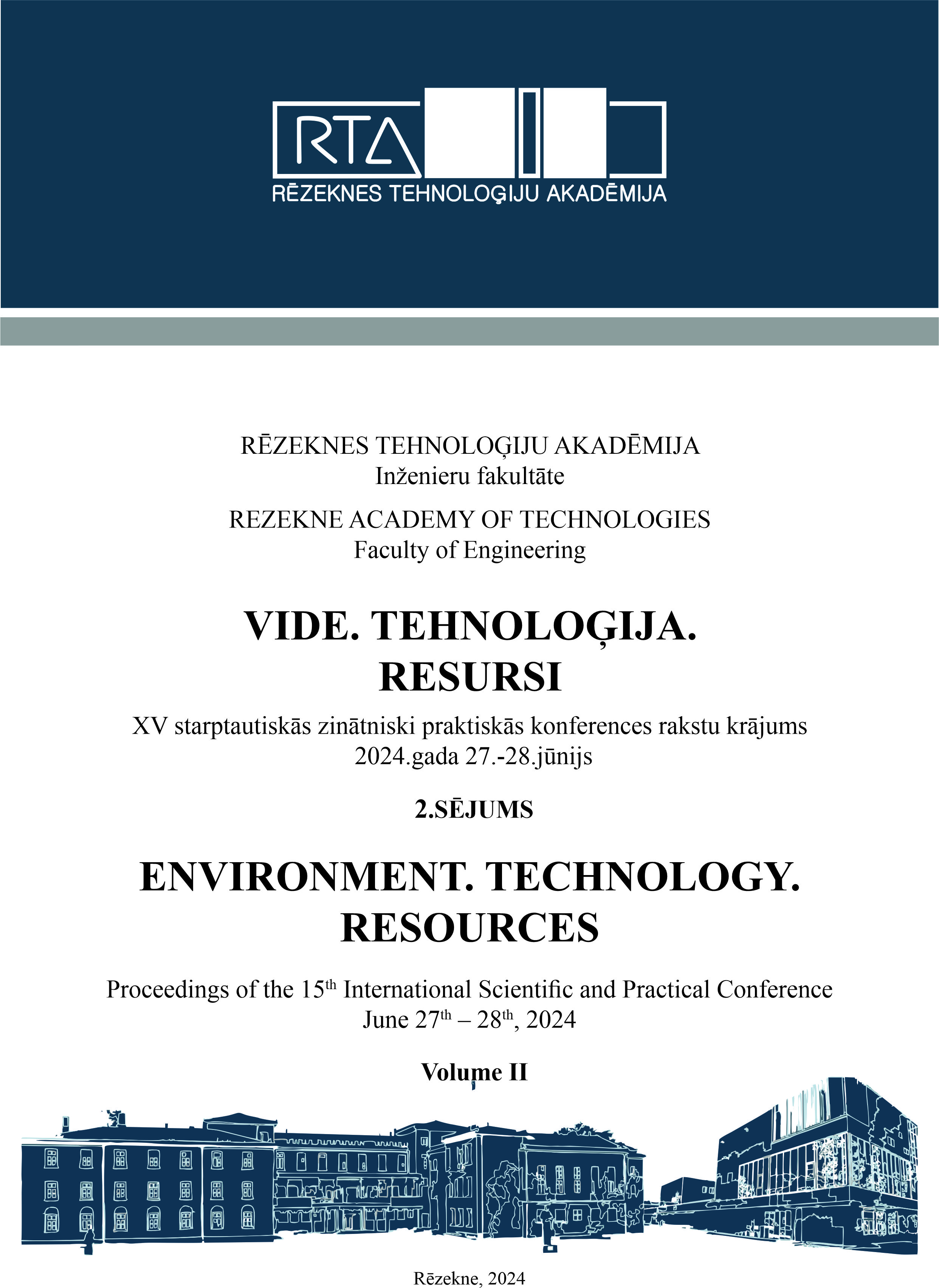THE POTENTIAL OF DEVELOPING AND CREATING ONLINE APPLICATIONS FOR TEACHER TRAINING
DOI:
https://doi.org/10.17770/etr2024vol2.8086Keywords:
app development, apps, e-portfolio, m-learning, teacher trainingAbstract
In the modern society, technology is everywhere. From birth, children learn about technology and develop computer competence. Whether a baby, preschooler, or adult – it doesn't matter, everyone has basic skills in manipulating devices and interacting with the Internet (according to age, body functionality, etc.). However, this is not what can satisfy the growing need to change approaches to professional activities in various fields of science and life. In particular, to education at all levels, which should ensure qualitative and quantitative changes for further professional activity.
For example, we conducted a review of the latest theoretical and practical publications on the development and creation of online applications, which formed the basis for our own reflections on their implementation and use. It is not the first year that we have been addressing the issue of application development, collecting and analysing information on the involvement of future teachers in content development. After all, observing the development of technological solutions in developed countries of Europe and the USA, we analysed the development and demand for new technological solutions in education. And as a result of this introduction, based on the analysis, we were able to consider: fundamental differences in understanding and approaches to working with applications in the Ukrainian scientific community and in international practice; analyse the potential of developing and creating applications by students majoring in primary education and preschool education; to make a snapshot of data through feedback on their e-portfolios of relevant developments of their own production and lists of applications available online.
This approach allowed us to draw conclusions about the potential risks of implementing online applications in practice. We also identified critical points in preparing teachers to use existing, create and develop their own online applications for working with children.
Downloads
References
P. Diamandis, S. Koler. Maibutnie blyzhche nizh zdaietsia. Yak tekhnolohii zminiuiut biznes, promyslovist i nashe zhyttia / per. z anhl. D. Kozhedub. Kyiv: Laboratoriia, 2021. 320
Osvita. Demohrafichna ta sotsialna statystyka. Derzhavna sluzhba statystyky Ukrainy. https://www.ukrstat.gov.ua/
S. Vosloo. 2012. Mobile learning and policies: Key issues to consider.
M. Sharples, I. Arnedillo-Sánchez, M. Milrad, & G. Vavoula. 2009. Mobile learning: Small devices, big issues. Technology-enhanced learning: Principles and products, 233-249.
A. A. Vacas, J. I. N. González, & S. Á. Sánchez. 2019. Uso de una app móvil para evaluar la calidad de la enseñanza superior. Prisma Social: revista de investigación social, (27), 65-85.
A. S. Yucel. 2006. E-learning approach in teacher training. Turkish Online Journal of Distance Education, 7(4), 123-131.
G. Winder, A. Kern, K. Zehetner, & J. Buchner. 2023. Unlocking Potential: Creating an Innovative Learning Platform to Foster Digital Skills of Educators. In S. Singh (Editor), The 9th eLearning Excellence Awards. An Anthology of Case Histories 2023. 155-161.
A. Schröder, & T. Baumeister. 2015. Social Innovation in Education and Lifelong Learning: State of the Art Summary. SI-DRIVE Deliverable, 4.
D. Bannister, & S. Wilden. 2013. Tablets and apps in your school. Retrieved September, 26, 2018.
I. L. Mosenkis, L. V. Lukianyk, O. M. Strokal, V. A. Ponomarova, & H. V. Mykhailiuk. 2020. Application of cloud educational technologies for teacher competence development. International Journal of Learning, Teaching and Educational Research, 19(5), 289-303.
P. F. Arias, E. O. Olmedo, D. V. Rodríguez, & A. I. G. Vallecillo. 2020. La gamificación como técnica de adquisición de competencias sociales. Prisma Social: revista de investigación social, (31), 388-409.
J. Wishart. 2017. Mobile learning in schools: Key issues, opportunities and ideas for practice. Routledge.
D. A. Martínez, & P. N. Ostúa. 2019. Juegos y simulaciones en la educación actual. Prisma Social: revista de investigación social, (25), 537-548.
Downloads
Published
Issue
Section
License
Copyright (c) 2024 Oksana Voloshyna, Tetiana Melnychuk, Mykyta Sapohov, Nelia Burlaka, Anna Khilya

This work is licensed under a Creative Commons Attribution 4.0 International License.


